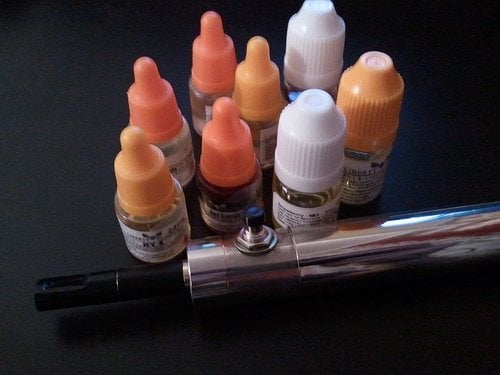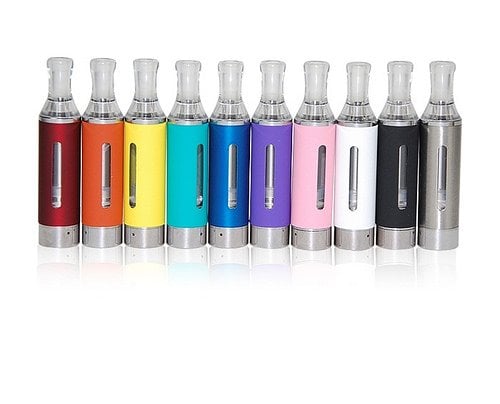The Wells Fargo Securities Tobacco Talk recently conducted a survey of tobacco wholesalers representing over 25,000 retail locations and discovered these wholesalers held the solid belief that e-cigarettes are not just a “passing fad.” In fact, they expect the vaping industry to bring in over $1 billion over the next few years.
With the vaping industry expanding almost exponentially and economic experts predicting the popularity of “vaping” to outpace supply, the question of when–not if–the FDA will begin aggressively pursuing implementation of regulatory standards raises even more problems for vape manufacturers who currently produce e-liquids in unregulated environments.
E-Cigs are Considered Medicinal Products in Britain
Britain’s version of the U.S. FDA–the Medicines and Healthcare Products Regulatory Agency–has already announced that e-cigs, in addition to any product containing nicotine, will be deemed “medicinal” and regulated by the MHRA as a medicinal product starting in 2016. Not only is that bad news for our U.K. vaping friends, but it should also be a wake-up call for U.S. vape manufacturers who continue supplying their products to eager consumers without needing to worry about restrictive–and expensive–FDA regulations. At least, not yet.
With studies like those published in Addiction and the Journal of Liquid Chromatography & Related Technologies identifying impurities in certain e-liquid brands, the possibility that the FDA is right now making plans to issue standardized regulations to which vape manufacturers will be expected to follow is very high, if. One study found that “significant labeling issues were detected…with high concentrations of nicotine [in products] labeled not to contain nicotine”, further necessitating strict standard operating procedures.
Makers of Dietary Supplements and Pharmaceuticals Know What’s Coming for the Vape Industry
In addition to performing tests on all ingredients used in making e-liquid and monitoring production methods, the FDA will likely establish similar rules and regulations for maintaining cleanliness in a vape production facility. Just like makers of dietary supplements, prescriptions and over-the-counter medications have to conform to extensive guidelines concerning workers’ personal hygiene, machine decontamination techniques and atmospheric/environmental cleanliness standards, vape manufacturers will eventually be subjected to these types of stringent rules as well.
Contamination of Vape Juice Ingredients
Ingredients used to make vape liquid include PG (propylene glycol), VG (vegetable glycerine), various flavorings, nicotine and water. Bacterial contamination of all these organic ingredients is entirely possible in unsterile conditions, since moisture is the primary vector of bacteria and other disease-causing pathogens.
Just like contaminated meats and produce make their way to grocery store shelves and ultimately sicken hundreds of people who consume the food, vape juice could suffer from bacterial contamination and cause widespread illness. Moreover, consequences of contaminated e-cig liquid reaching consumers would be financially devastating to vape manufacturers and could possibly force e-cigarette companies into bankruptcy.
FDA and Tobacco Products Regulation
A recent court decision developing from Sottera, Inc. v. FDA, 627 F.3d 891 (D.C. Cir. 2010) asserts that “products made or derived from tobacco can be regulated under the FDCA’s ‘tobacco product’ authorities unless they are ‘marketed for therapeutic purposes,’ in which case they are regulated as drugs and/or devices.”
If the FDA reclassifies e-cigs as “tobacco” products because of the minimal amounts of nicotine included in vaping liquid, this court decision will undoubtedly be one of many regulations governing federal oversight of the vaping industry.
How Cleanrooms Can Prepare Your Vape Facility for Inevitable FDA Regulations
State-of-the-art cleanrooms are the latest devices emerging from the environmental engineering industry that provide contaminate-sensitive facilities with controlled, sanitary environments. By reducing atmospheric concentrations of particulate matter and microorganisms through regulation of air flow direction/rate, humidity, temperature and pressurization, Terra Universal’s cleanrooms provide FDA-approved methods that vape manufacturers can utilize to develop superior products and ensure their products are free of harmful contamination.
Additional benefits offered by Terra Universal’s cleanrooms:
- Cleanrooms are free-standing structures that can be assembled within a few days to provide an ISO 5-8 fully contained environment equipped with ULPA or HEPA filter/fan units.
- Easy-to-use display panels allow you to immediately adjust lights, pressure, fans and many other options
- Choice of hardwall (dissipative PVC, polypropylene or polycarbonate) or softwall (anti-static vinyl) cleanrooms
- “BioSafe” designs incorporate features that optimize sterile operations, including smooth internal surfaces with chemically resistant materials that stand up to disinfectants
- Low maintenance (only light bulbs and FFU filters need changed), solidly constructed and easily cleaned using mild bleach solutions and IPA.
- Modularity of Terra Universal’s cleanrooms allows vape manufacturers to modify and relocate them to adapt to changing interior architecture without added expenditures.
- Night service mode reduces energy costs while still maintaining 24/7 cleanroom integrity.
- Designed with specific features to facilitate passage of air over all surfaces to prevent particulates from collecting and accumulating.
- The dry, cool environment contained in a cleanroom eliminates the ability for bacteria, mold and fungus to develop and contaminate organic materials.
Should E-Cigarette Manufacturing Be Regulated?
Advocates for an FDA-regulated e-cigarette industry point to research results showing nicotine is a physically addicting drug that targets the same “reward” pathways stimulated by heroin, alcohol and cocaine. Additional research concerning nicotine’s carcinogenic properties has revealed that nicotine does have the potential to cause cancer in cell cultures and animal models.
Also implicated in the probability that the FDA will regulate the process of manufacturing e-cigarettes is the fact that the currently untaxed vaping industry is making millions of dollars annually and shows no sign of slowing down. Officially designating the vaping industry as a “cleanroom industry” because of its use of organic products and nicotine means that state and federal taxes could be placed on e-cigarette sales comparable to tax rates applied to traditional cigarettes, cigars and other tobacco products.
Get your e-cigarette facility prepared ahead of time for the impending FDA smackdown by ordering one of Terra Universal’s modular cleanrooms. We can help you avoid paying expensive fines and penalties for not adhering to strict guidelines regulating quality control, processing methods and more importantly, cleanliness standards that prevent product contamination.





